Travel writing desk that belonged to Sir Faiyaz Ali Khan, 20th century
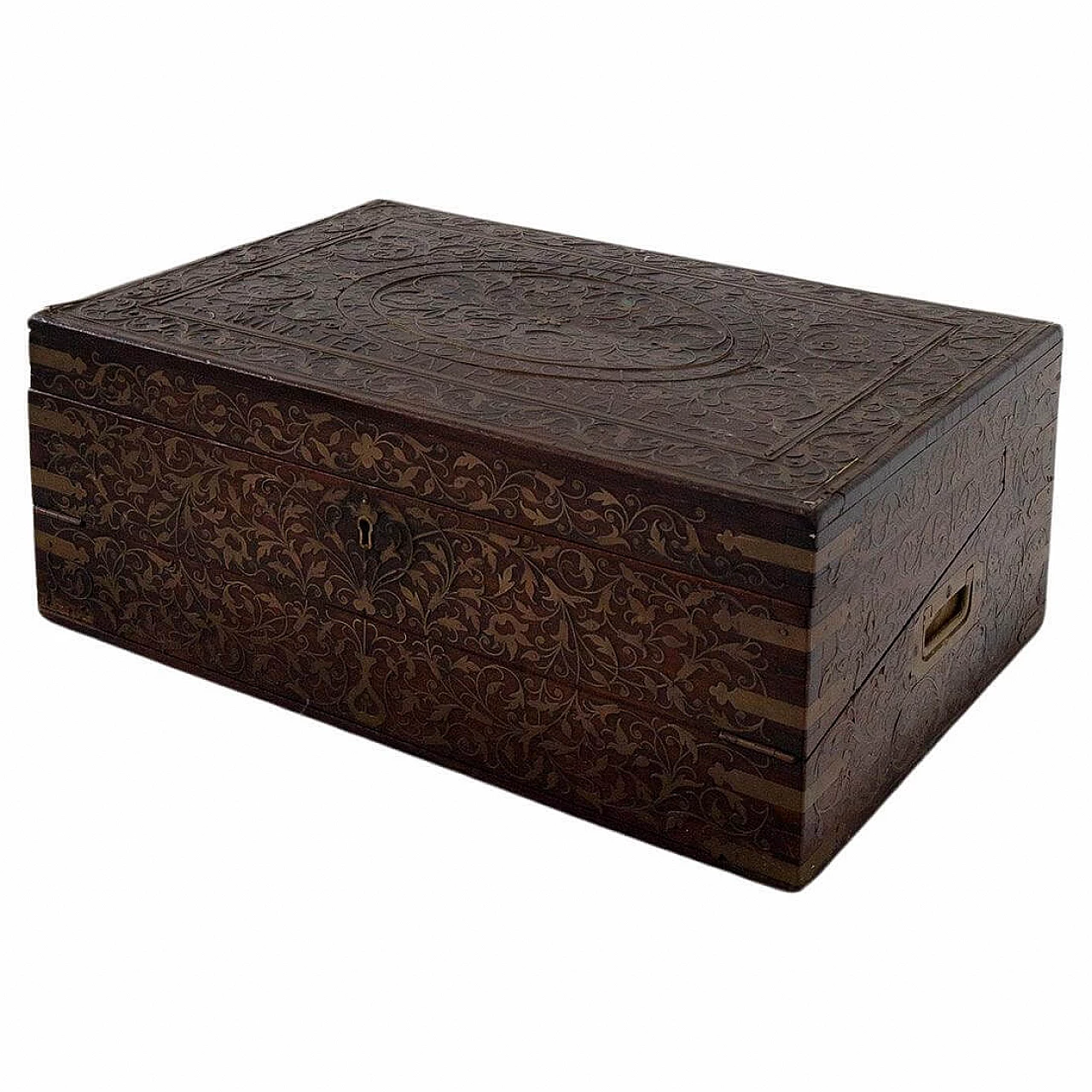
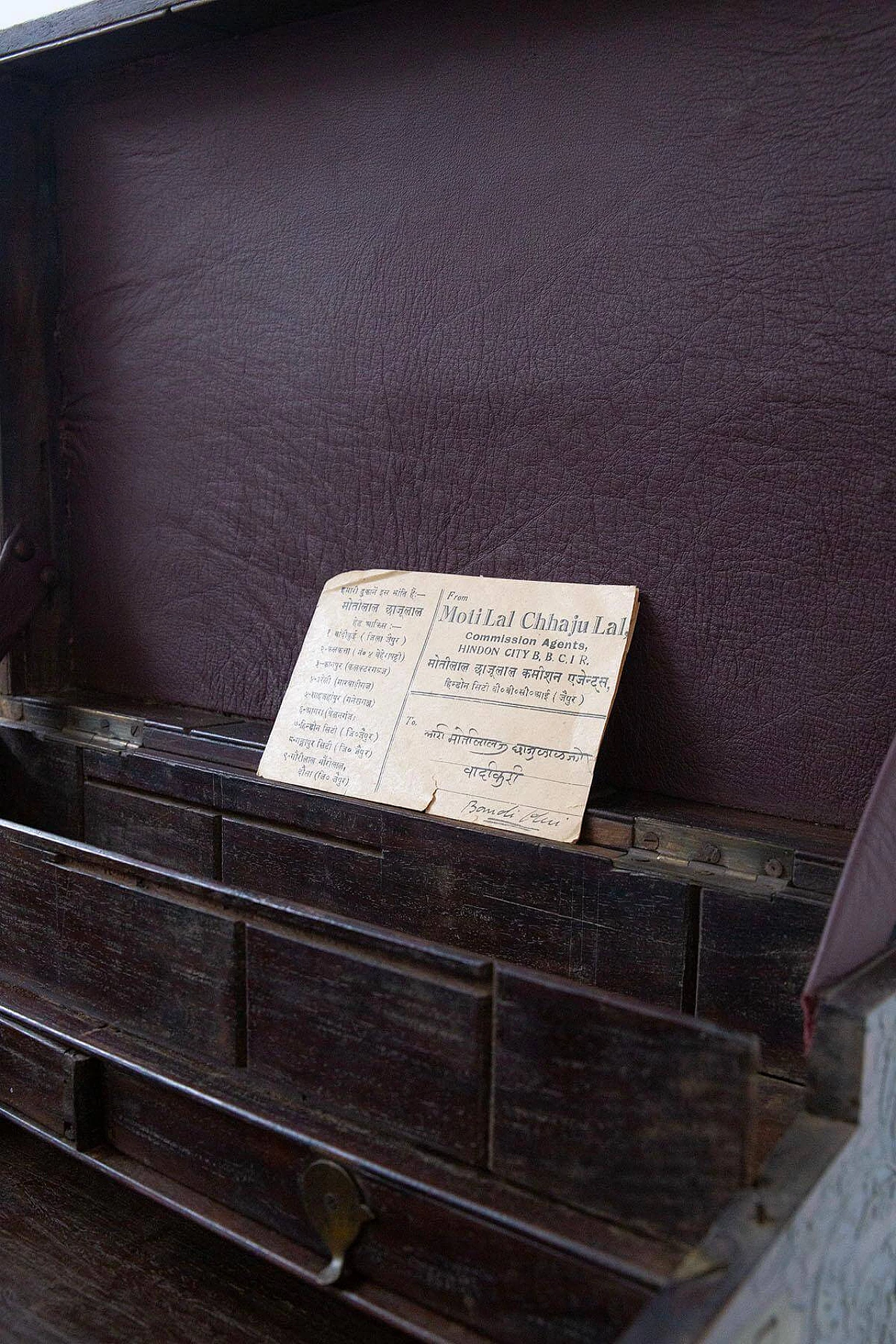
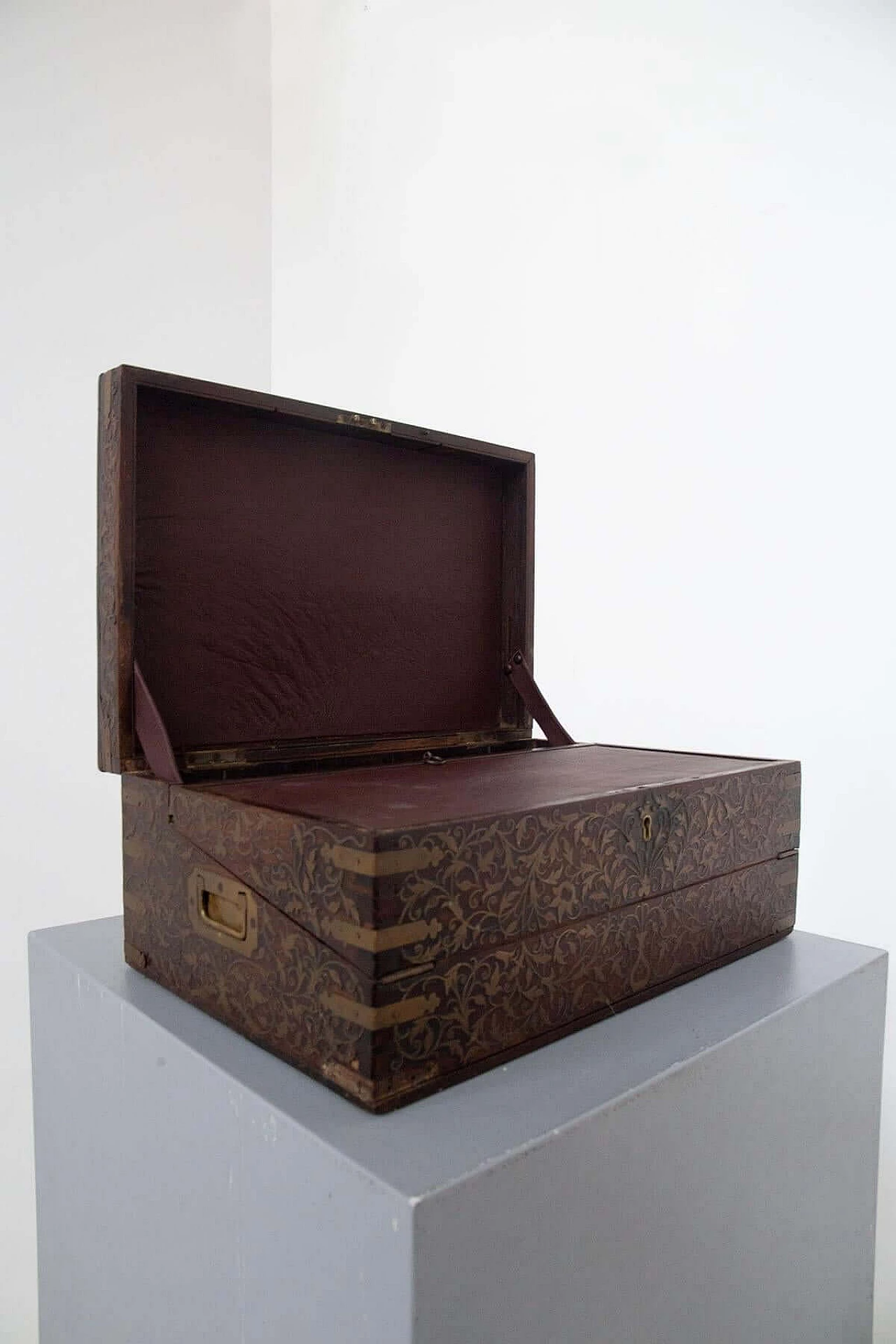
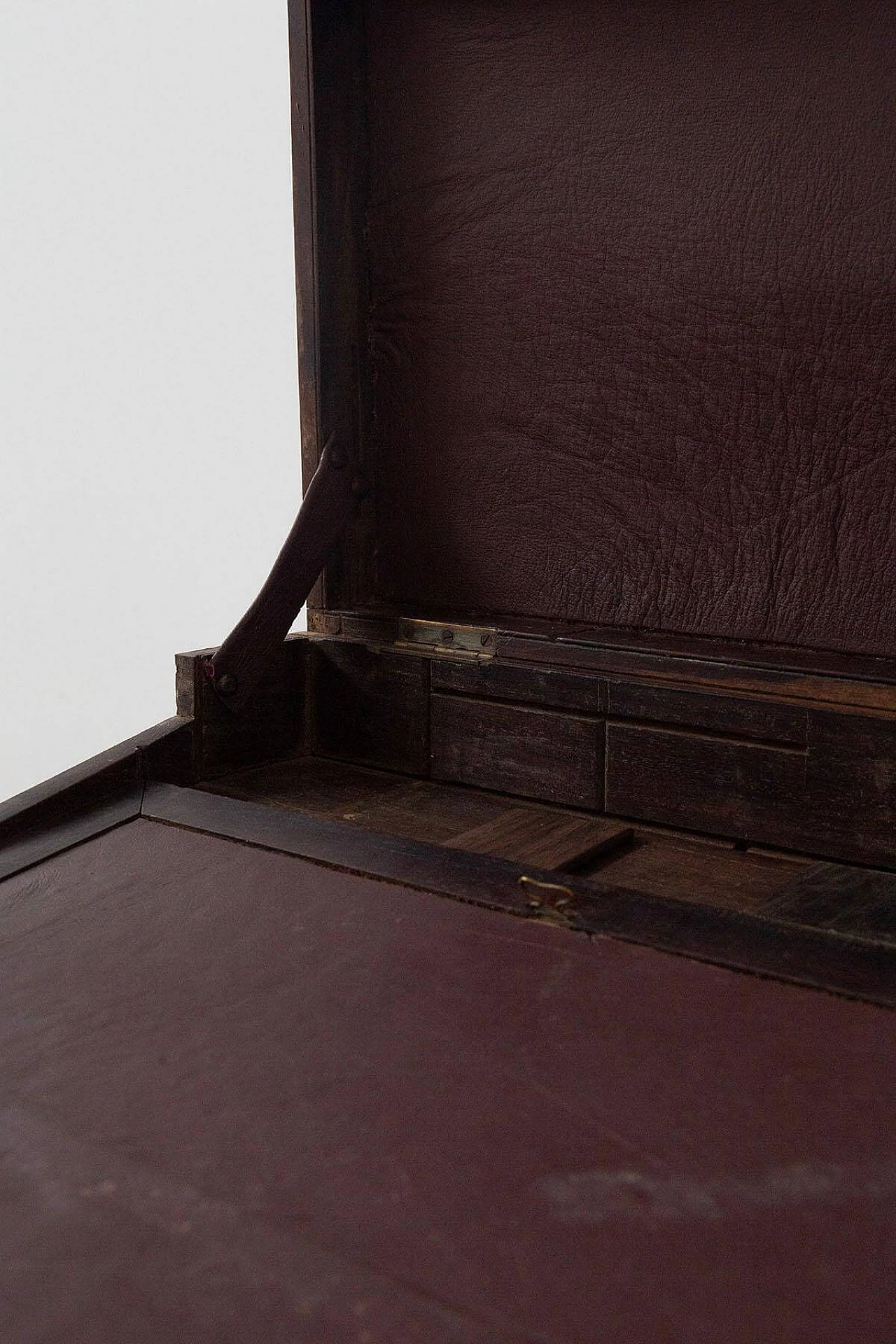
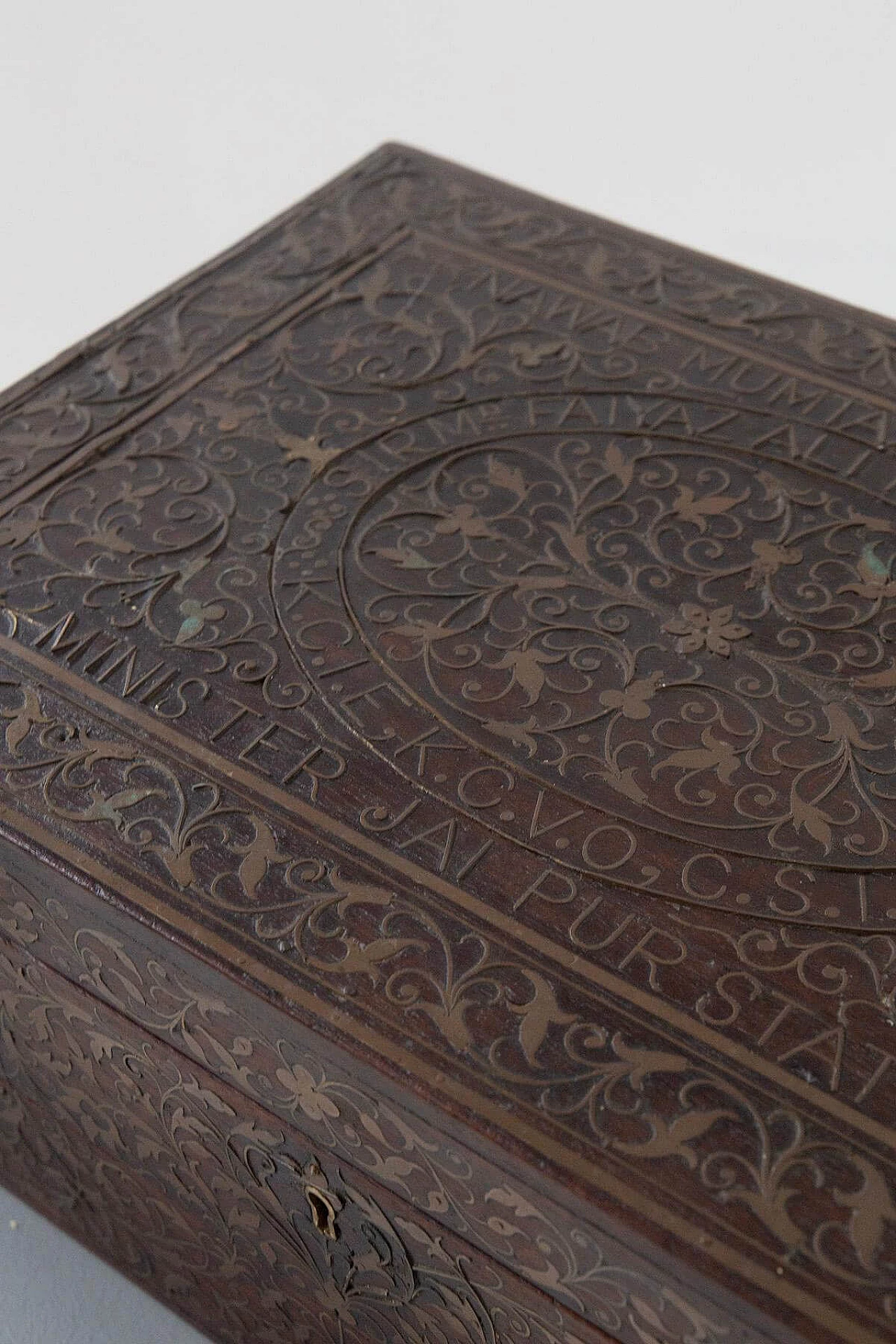
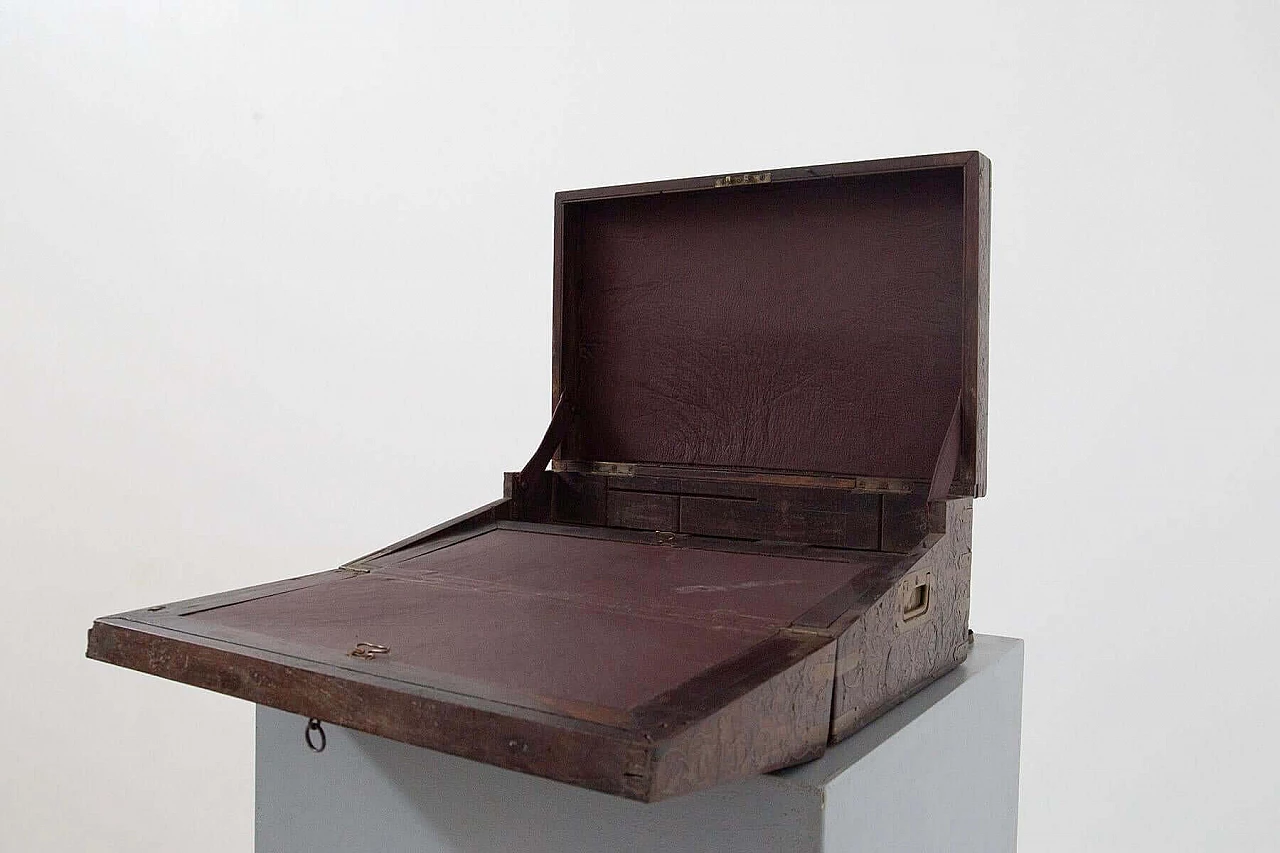
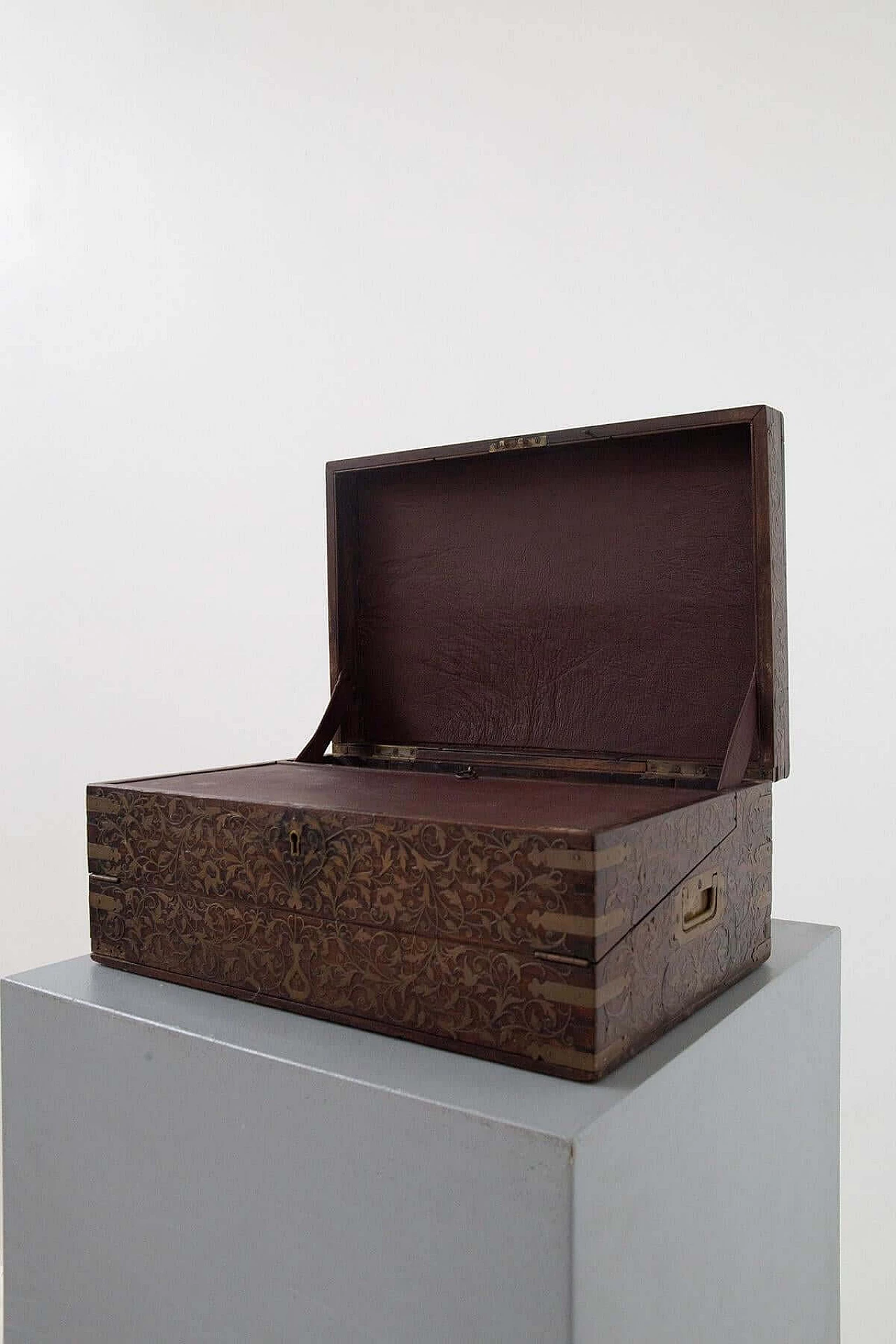
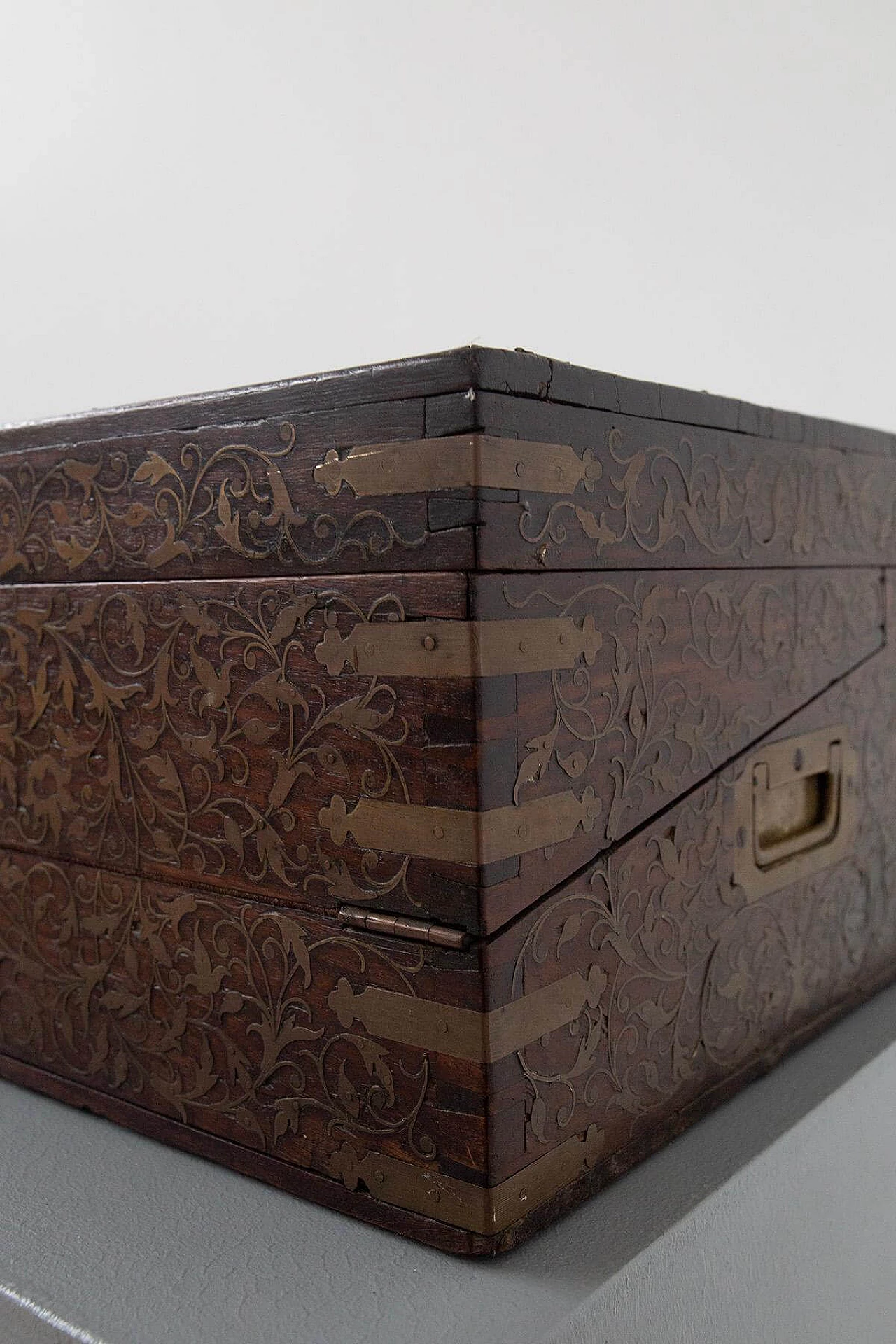
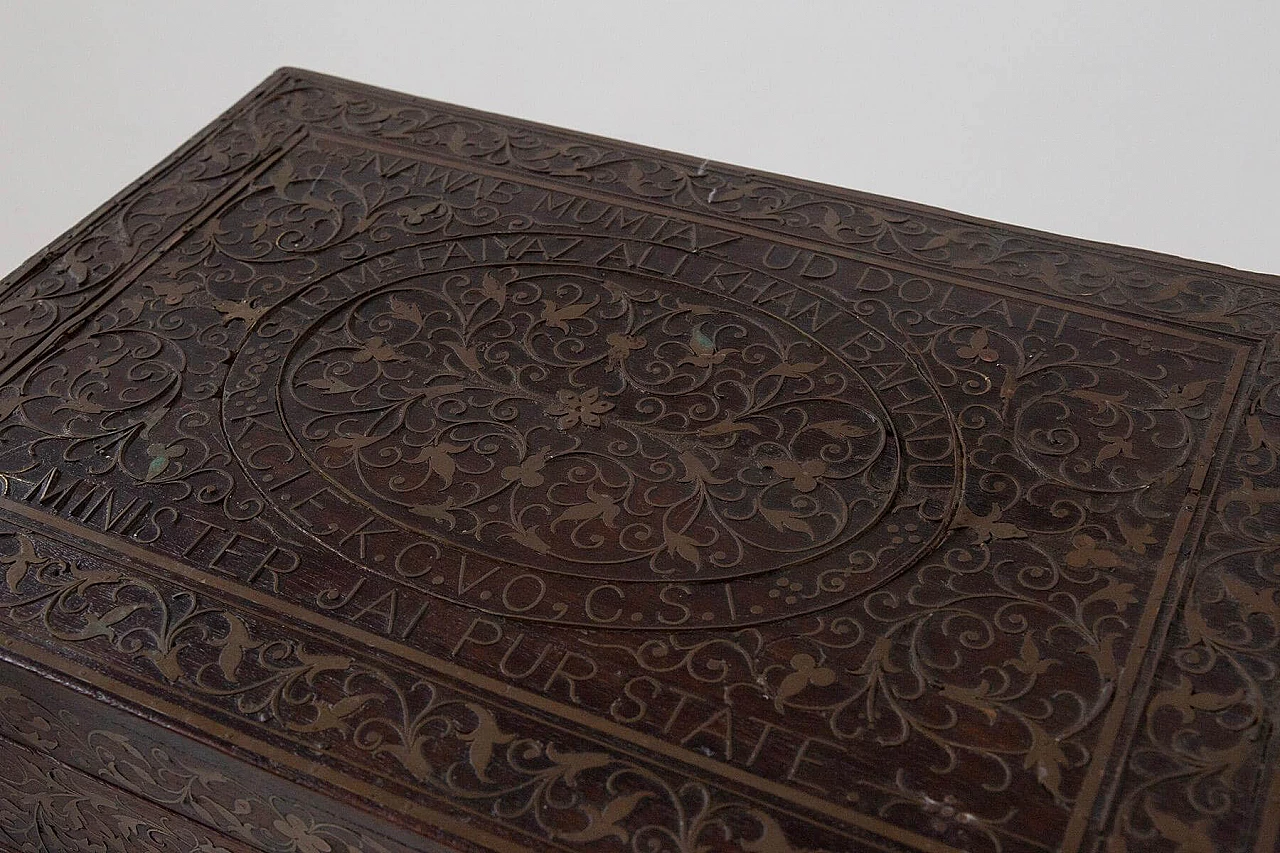
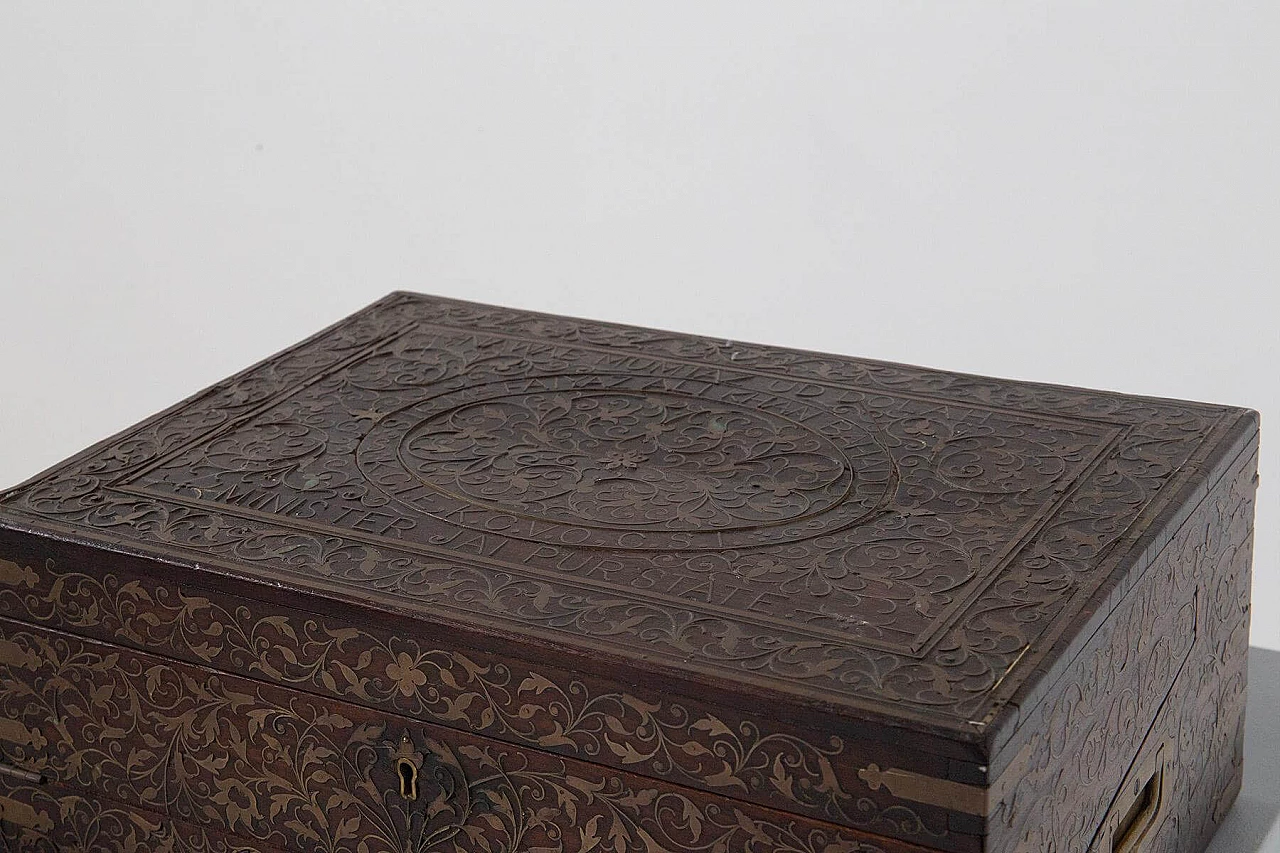
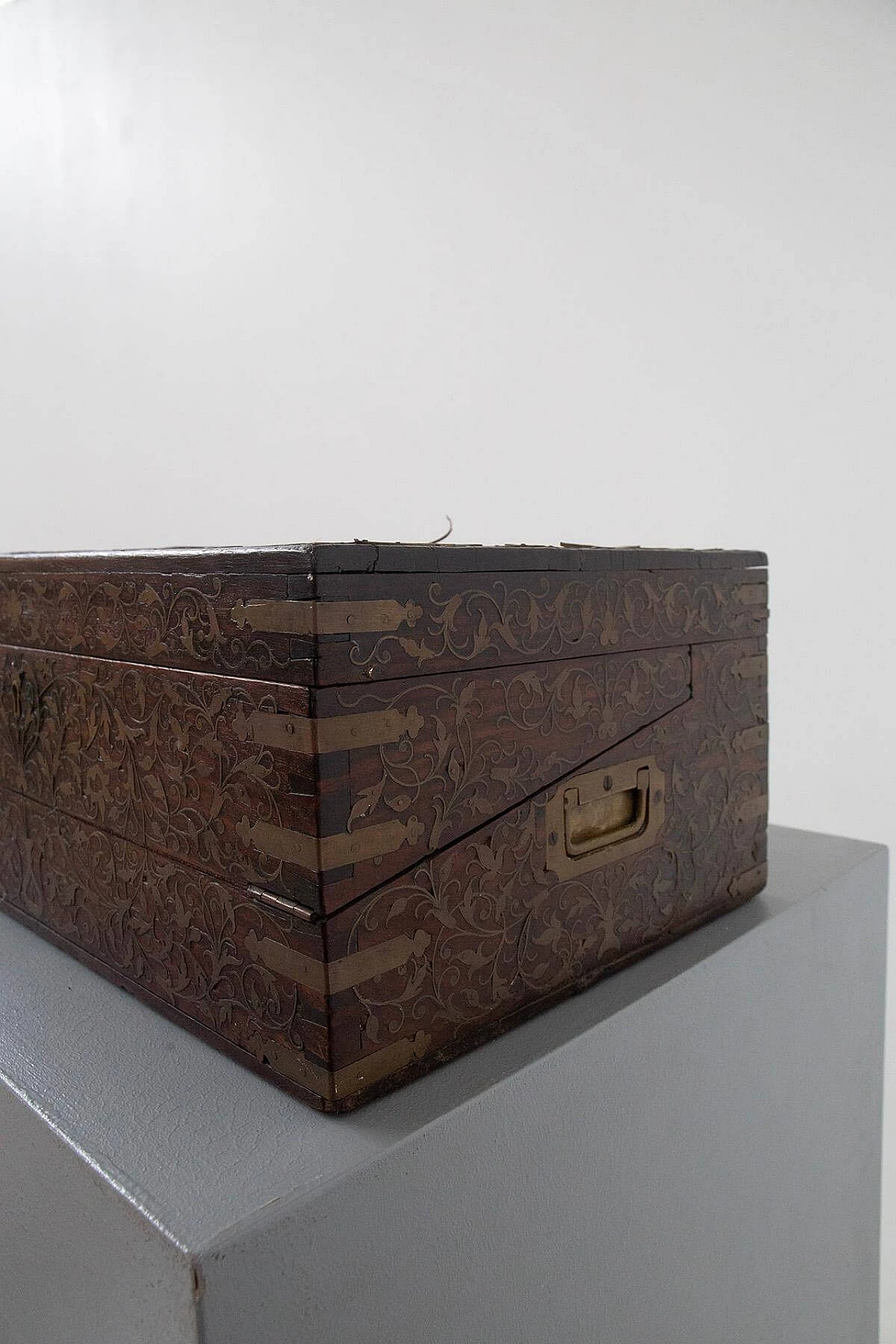
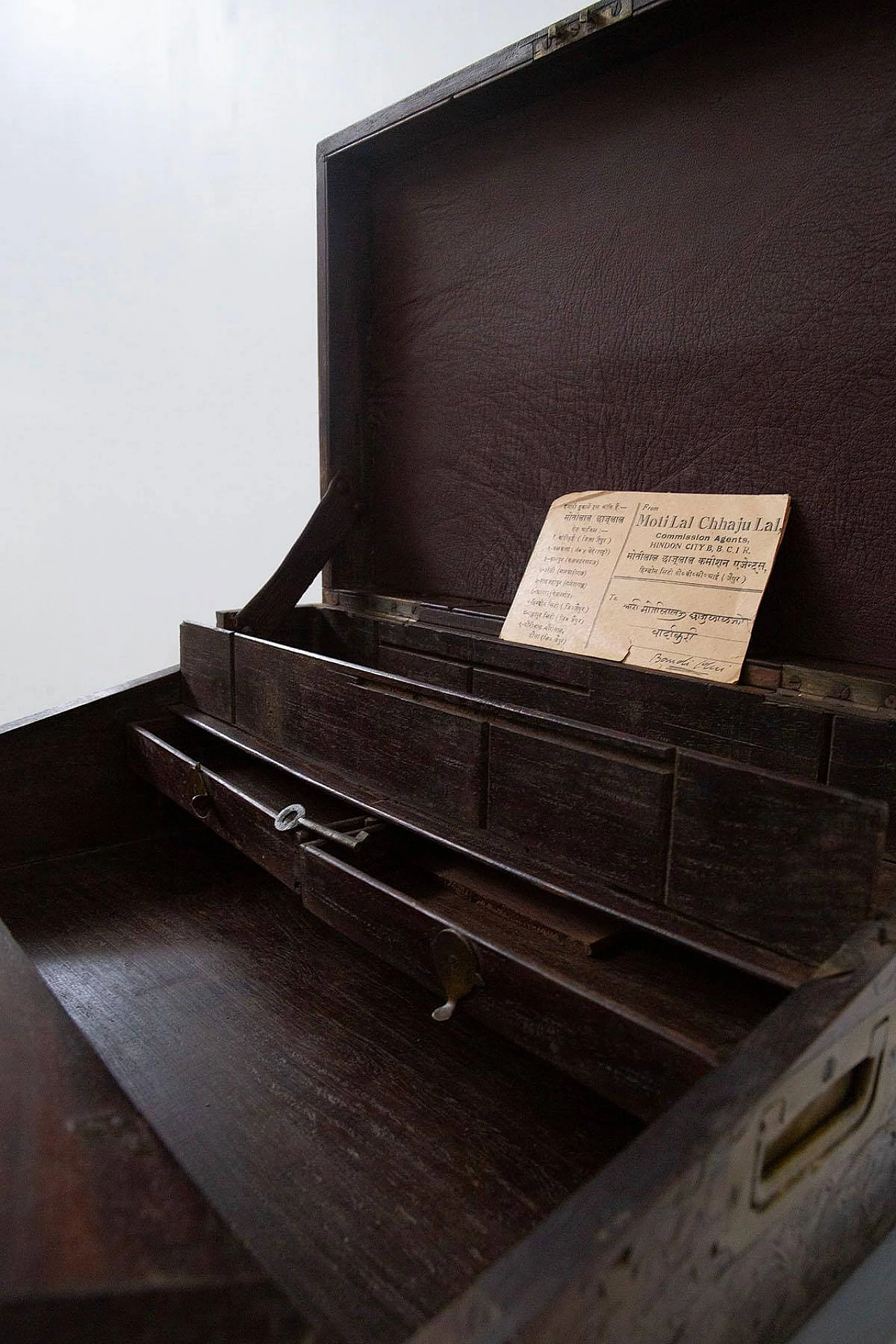
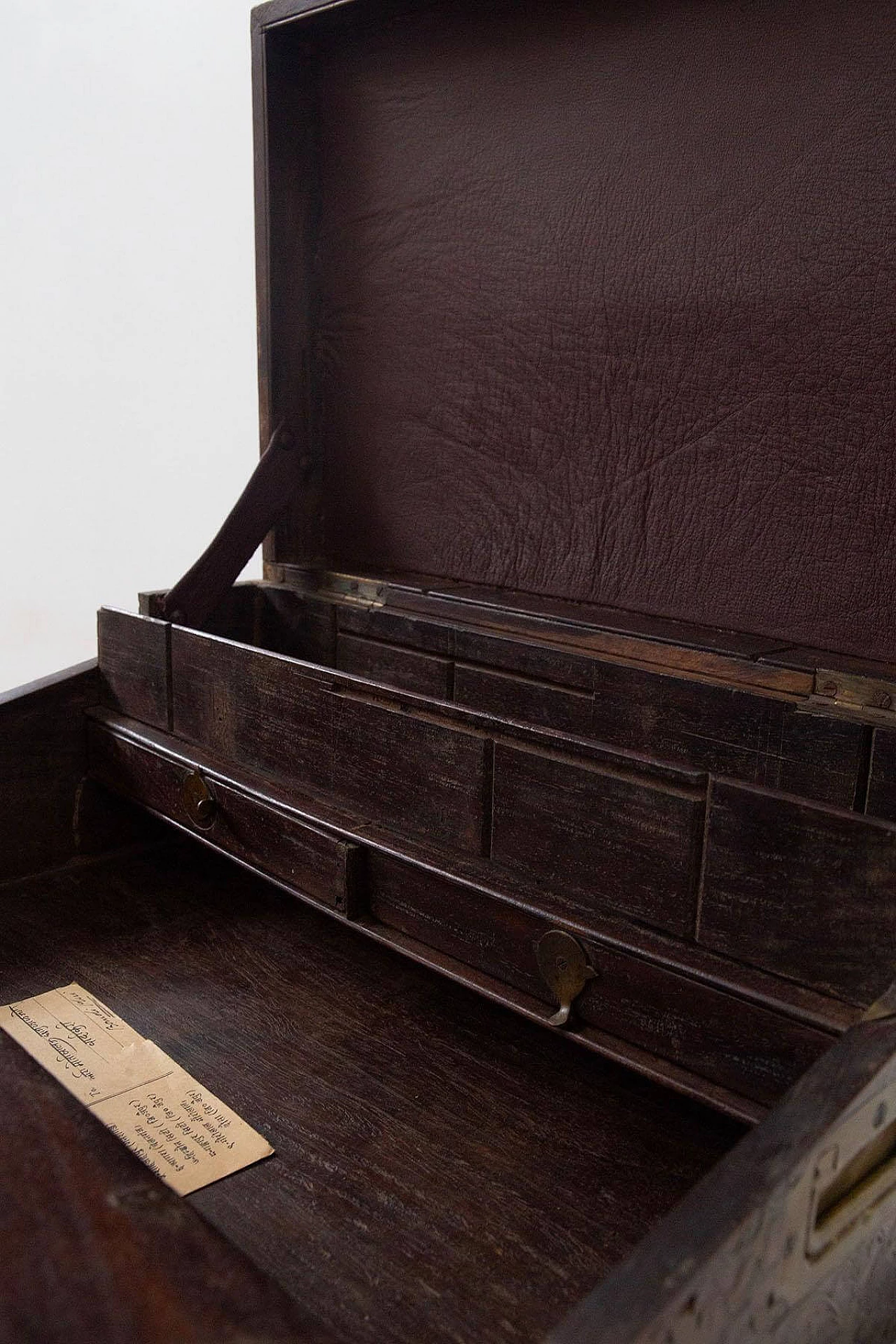
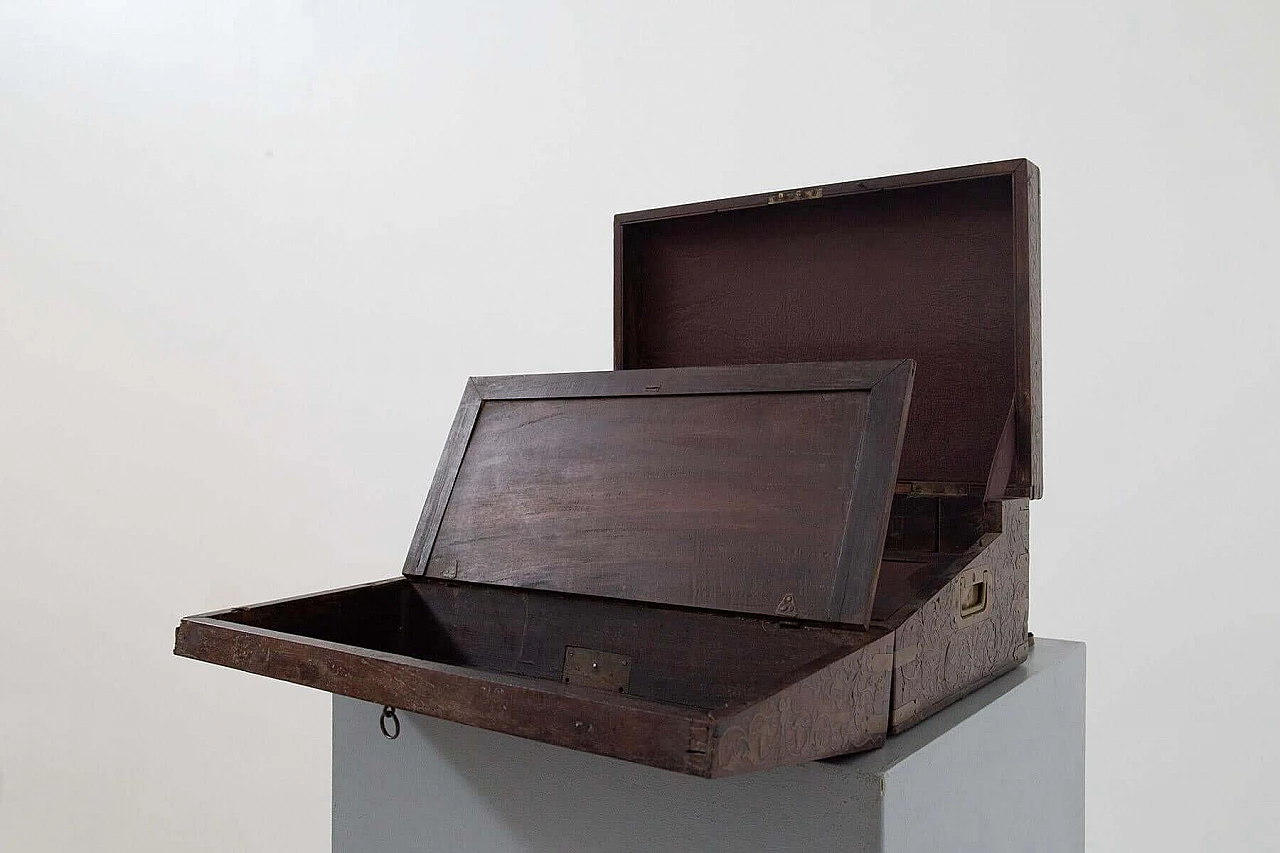
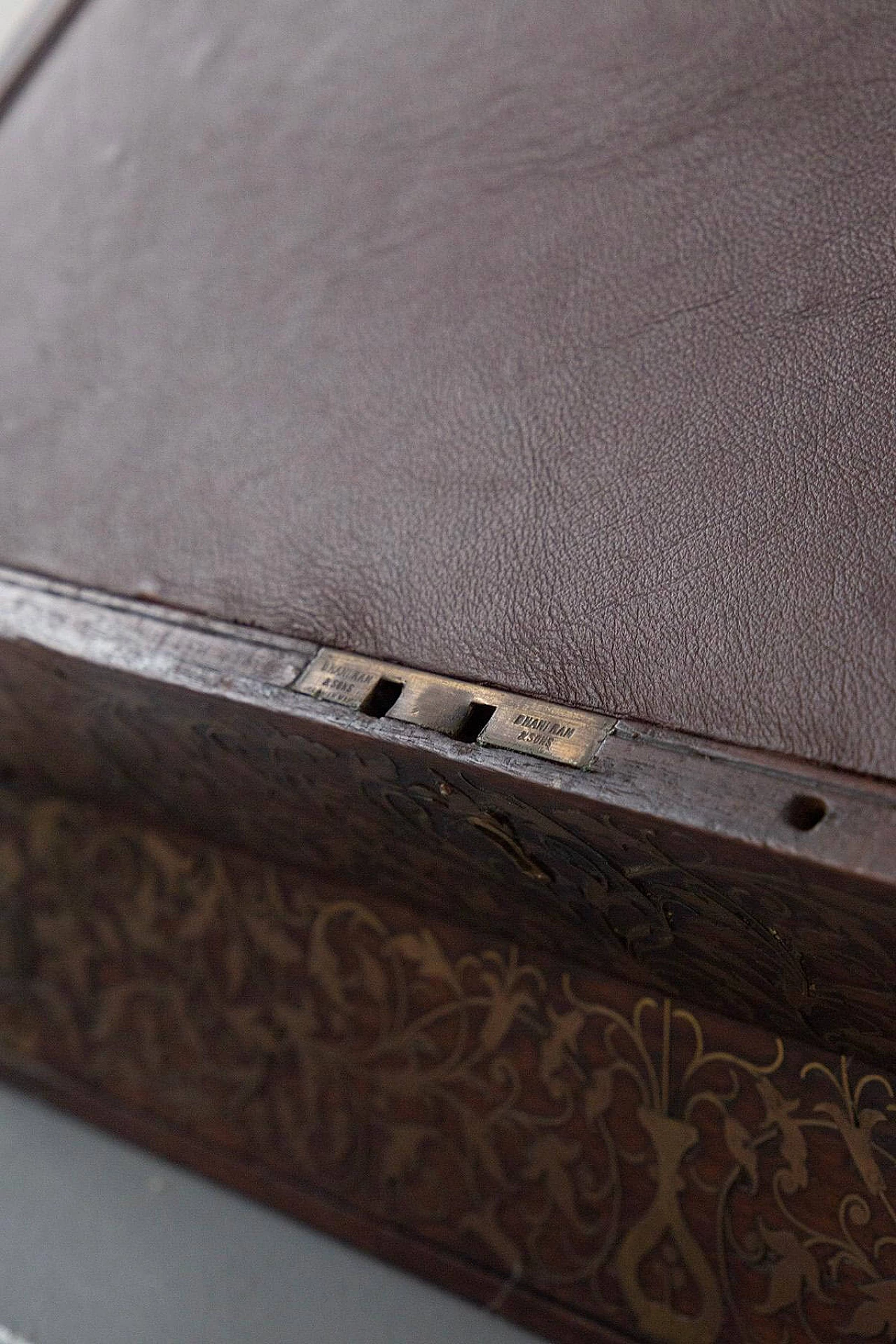
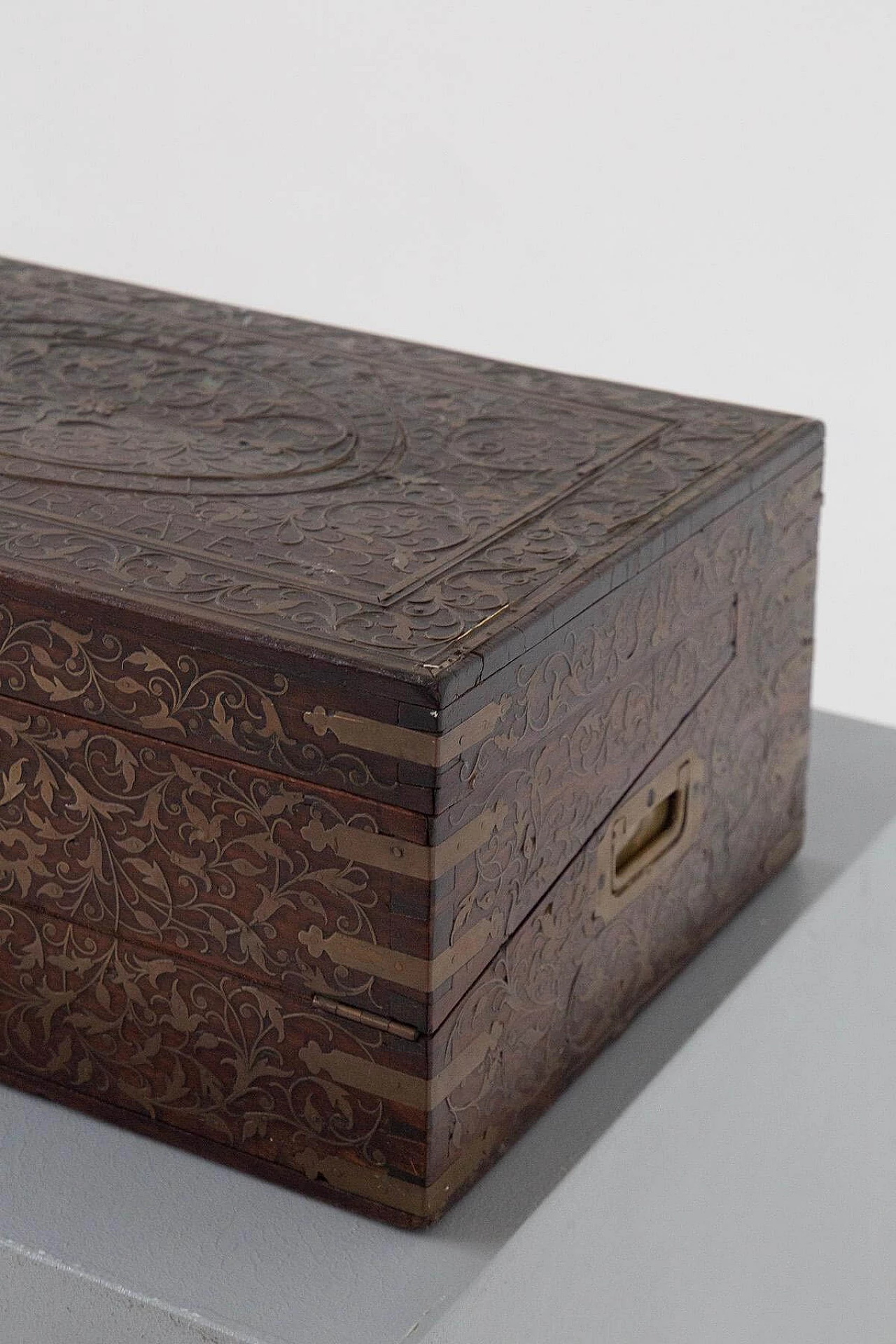
















This remarkable piece was once bestowed upon the esteemed Minister of State of Jaipur, Faiyaz Ali Kan Bahadu, adding an air of royalty to his already enchanting presence. As you run your hands across its surface, you will feel the intricate craftsmanship that dates back to the early 1900s. The carved wood, meticulously chiseled with delicate brass numerals interspersed, tells a story of skillful hands and unwavering dedication. But it is above the box that we discover a hidden treasure: the name of its illustrious owner, engraved forever in history.Gently opening the desk, you'll be transported to a world of wonder and sophistication. Within its casket-like embrace lie various compartments, each surface a testament to the desk's utilitarian brilliance. Small drawers await, eager to hold secrets and mementos cherished by its past guardians. And there, tucked away, lies a letter that once belonged to Marascìa, a whisper of time's passage and the desk's storied journey. But this extraordinary creation holds even more surprises within its depths. Concealed like well-guarded secrets are numerous hidden drawers and inserts, waiting to be discovered by the curious and the appreciative. Each detail adds to the allure, turning this desk into a treasure trove of wonders.We find the manufacturing mark near the lock.Two brass handles on its sides beckon, inviting you to partake in the grandeur and elegance of this historical gem. As you move it with grace, you can feel the weight of its legacy in your hands, a tangible connection to the past. In its very essence, this desk is not just an exquisite piece of furniture; it's a testament to the human spirit's boundless creativity and ingenuity. A symbol of history preserved through art and craftsmanship, it stands tall as one of the most coveted collector's items for those with an ardent love for historical art. Sir Nawab Sir Muhammad Faiyaz Ali Khan Bahadur KCIE KCVO CSI CBE (1851-1922) was a Nawab of Pahasu, a member of the Council of the Governor-General of the United Provinces of Agra and Oudh and a member of the Legislative Council of the United Provinces. Khan was appointed Foreign Minister of the Jaipur State Council in 1901 by Maharaja Sawai Madho Singh II (1880-1922). In 1902 he was chosen to represent the United Provinces of Agra and Oudh at the coronation in London of King Edward VII and Queen Alexandra.
ID: 36842-1691485567-69554
